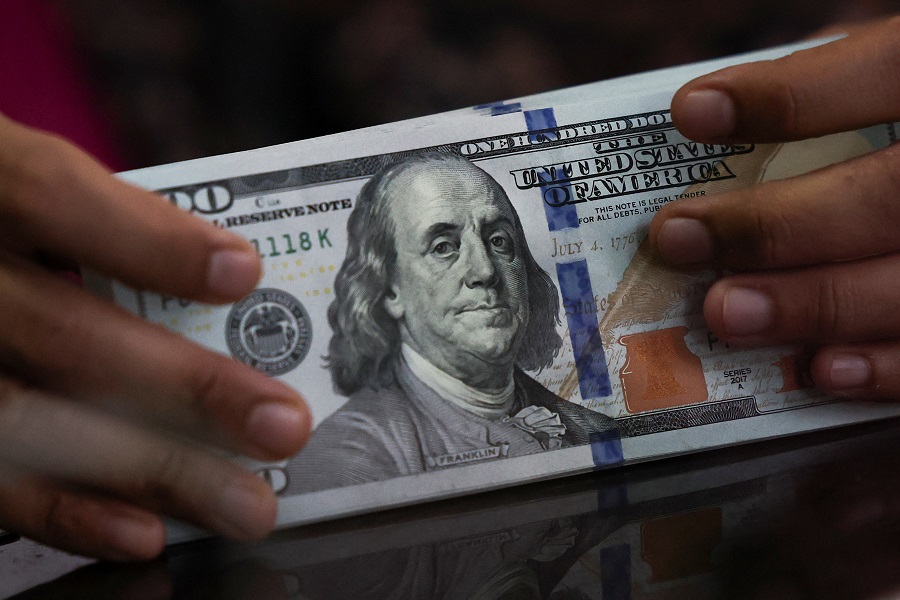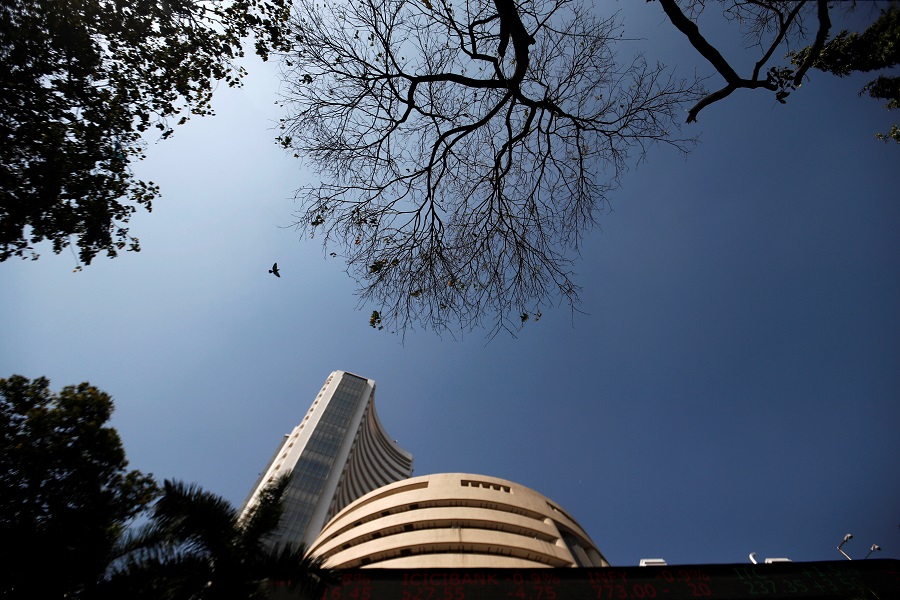Benchmarks extend losses for second straight session
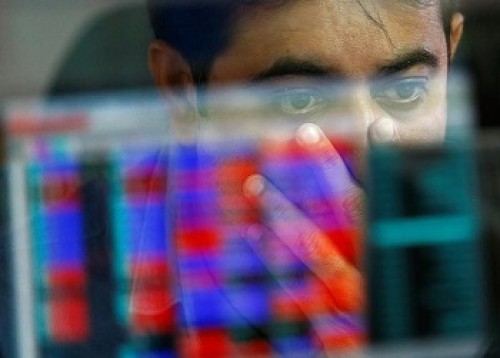
Indian equity benchmarks extended losses for the second straight session and settled over one and half percent lower on Monday, as investors fretted over the spread of the Omicron variant of Covid-19 and looked ahead to the RBI's bi-monthly monetary policy meeting this week for directional cues. Domestic equities started in the red amid reports about continues foreign fund outflow. The exchange data showed that foreign portfolio investors (FPIs) remained net sellers for Rs 3356.17 crore in the Indian markets. Some concern also came with India Ratings and Research (Ind-Ra) stating that tightening of norms may increase non-banking finance companies' (NBFCs) headline non-performing advances (NPA) by around one third. However, the impact on provisioning could be modest, given NBFCs are using 'IND-As' and generally for higher rated NBFCs, provision policy is more conservative than 'IRAC' requirements.
Key gauges have extended losses and registered fresh intra-day lows in late afternoon session. Traders took a note of report that amid the rising scare from the new coronavirus variant Omicron and ahead of the MPC meet, SBI house economists have urged the central bank to delay liquidity normalisation measures through a reverse repo hike, as such a 'prudent step' in the current situation will give more time for economic recovery to strengthen further. Traders overlooked Commerce and Industry Minister Piyush Goyal’s statement that India's foreign trade is in comfortable position and the time has come for India to engage more with the world. Meanwhile, Union Minister of Micro, Small and Medium Enterprises (MSME) Narayan Rane urged Indian entrepreneurs to take advantage of closure of factories in China. He said Indian industrialists should start manufacturing the products which are no longer produced in China.
On the global front, European markets were trading higher after initial reports suggested that the Omicron coronavirus variant might not have as much impact on the global economy as feared. Asian markets settled mostly lower on Monday, as the much weaker-than-expected U.S. job growth in November raised some concerns the Federal Reserve is not expected to deviate from accelerating the tapering of its asset purchases. Back home, on the sectoral front, agriculture industry’s stocks were in focus with the commerce ministry’s statement that India's exports of agricultural and processed food products rose by more than 13 per cent during April-November this fiscal to $13.26 billion. Stocks related to defence industry too were in action as Defence Minister Rajnath Singh said that defence exports from India during the last seven years have been of more than Rs 38,000 crore due to the government's initiatives.
Finally, the BSE Sensex fell 949.32 points or 1.65% to 56,747.14 and the CNX Nifty was down by 284.45 points or 1.65% to 16,912.25.
The BSE Sensex touched high and low of 57,781.46 and 56,687.62, respectively and all 30 stocks declining on the index.
The broader indices ended in red; the BSE Mid cap index fell 1.35%, while Small cap index was down by 1.35%.
The top losing sectoral indices on the BSE were IT down by 2.49%, TECK down by 2.44%, Telecom down by 1.98%, Energy down by 1.92% and Healthcare down by 1.78%, while there were no gaining sectoral indices on the BSE.
The top losers on the Sensex were Indusind Bank down by 3.75%, Bajaj Finserv down by 3.43%, Bharti Airtel down by 2.96%, HCL Technologies down by 2.94% and TCS down by 2.89%.
Meanwhile, the government has said that the US has once again emerged as the largest trading partner of India with bilateral merchandise trade of $67.41 billion during the April-October period this fiscal. Minister of State for Commerce and Industry Anupriya Patel has said the US has been the largest trading partner of India with respect to merchandise trade since 2018-19, except in 2020-21, when trade with America declined marginally on account of the COVID-19 pandemic.
She said ‘In the current 2021-22 (April- October), the US has once again become the largest trading partner with bilateral merchandise trade of $67.41 billion, accounting for 11.98 per cent of India’s total merchandise trade’. She also said that India’s bilateral trade with Australia has increased to $13.88 billion in 2021, from $7.48 billion in the corresponding period of 2020.
Similarly, the bilateral trade with UAE has grown to $49.06 billion in 2021, from $29.48 billion in 2020 for the same period. He added ‘The bilateral trade with Belgium has also grown to $13.70 in 2021, from $7.63 billion in 2020 for the same period’. Separately, Patel said the share of export of goods and services in GDP has increased to 18.7 per cent during 2020-21, over 18.4 per cent in 2019-20, and 21.7 per cent in 2021-22 (April-September) over 19.4 per cent in 2020-21 (April-September).
The CNX Nifty traded in a range of 17,216.75 and 16,891.70 and there was 1 stock advancing against 49 stocks declining on the index.
The top gainer on Nifty was UPL up by 0.44%, while Indusind Bank down by 3.70%, Tata Consumer Product down by 3.36%, Bajaj Finserv down by 3.27% and Bharti Airtel down by 3.01% and TCS down by 2.93% were the top losers.
European markets were trading higher; UK’s FTSE 100 increased 49.90 points or 0.7% to 7,172.22, France’s CAC increased 36.19 points or 0.53% to 6,801.71 and Germany’s DAX increased 19.66 points or 0.13% to 15,189.64.
Asian markets settled mostly lower on Monday, as the sell-off in technology sector stocks and the looming concerns over rapid spreading Omicron virus variant saddled the market sentiments. Rising Bond yields also pressured the equity buying. China’s Shanghai ended lower after China’s property giant Evergrande hits 11 year low rate in the indices. Evergrande failed to pay coupons totalling $82.5 million due on November 6 and investors are on tenterhooks eyeing whether it can pay back its obligations before a 30-day grace period ends on December 6. The company reported to have plans to Include all offshore bonds in restructuring. Semiconductor and energy stocks also paced declines. Heng Seng tumbled the most in the session extending losing streak to third straight session, while Japan’s benchmark also ended modestly lower.
Above views are of the author and not of the website kindly read disclaimer
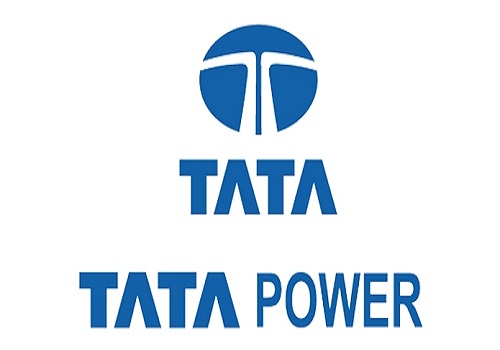



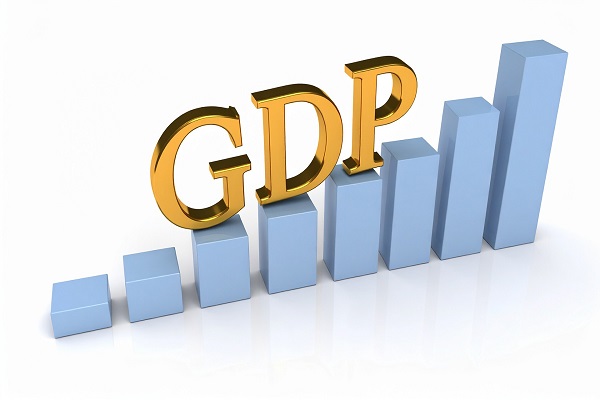

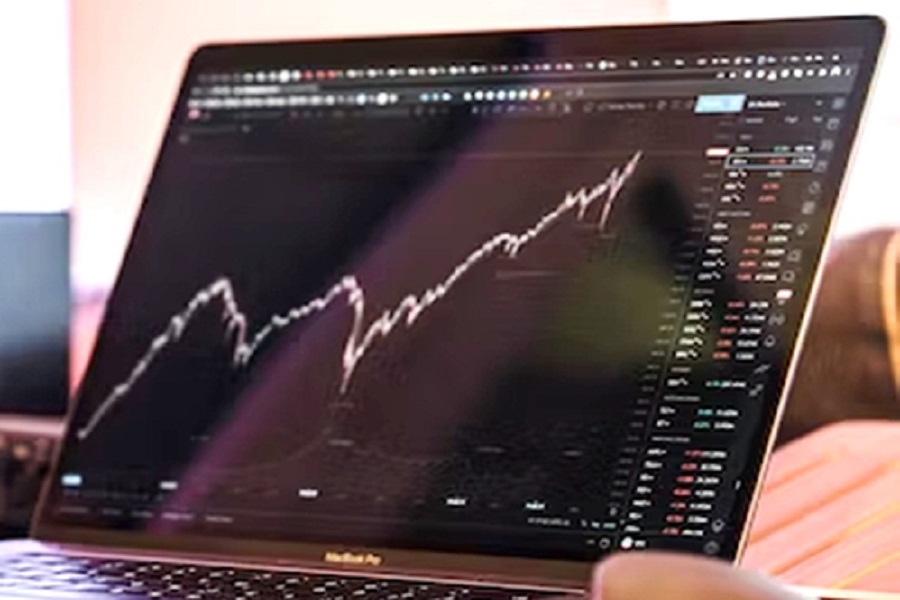

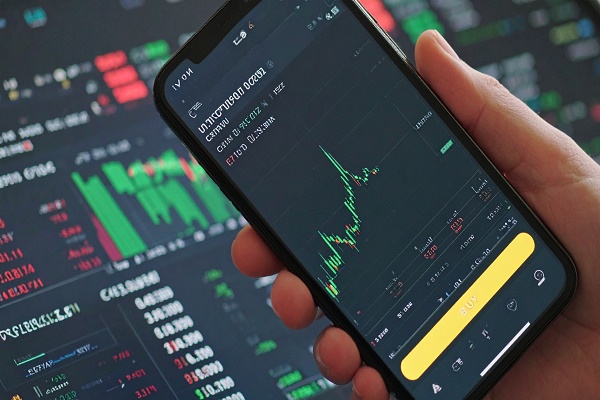

Tag News
More News

Short Covering was seen in the Nifty Futures where Open Interest fell by 2.12% with Nifty ri...







